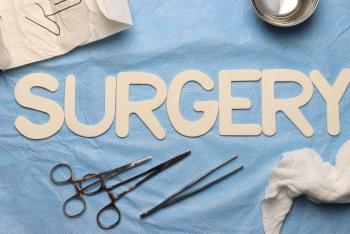For 81-year-old artist Bonnie Flanagan, an overall assessment of her health, which included a self...
Read More
Breast cancer awareness is not just a campaign; it's a call to action that has saved countless lives by empowering individuals to take charge of their health. Knowledge is power in the battle against this formidable disease, and early detection remains the strongest ally. Understanding the significance of self-exams, regular check-ups and professional mammograms can mean the difference between timely intervention and more advanced stages of breast cancer.
Breast self-exams are fundamental in maintaining breast health and detecting potential issues early. Carving out a few minutes each month for self-examination can be lifesaving.
"Breast self-exams help individuals become more familiar with their bodies, enabling them to notice changes and promptly seek medical attention if anything unusual is detected," said Nandini Kulkarni, M.D., a fellowship-trained, double board certified, surgical oncologist and Medical Director of Surgical Oncology for Inspira Health. These changes might include lumps, skin texture alterations or nipple discharge.
Remember, consistency is critical. If you notice anything unusual, seek medical advice as soon as possible.
Discovering a lump or any unusual change during self-exams might lead to anxiety, but taking proactive steps is essential.
"Don't panic; not all lumps are cancerous," said Dr. Kulkarni.
First, consult your health care provider to discuss your findings. They may recommend additional tests like additional mammographic views, ultrasounds or biopsies to determine the nature of the lump. Early detection and intervention enhance the chances of successful treatment.
While self-exams are crucial, they're just one piece of the puzzle. Regular visits to a health care professional and scheduling mammograms are equally vital. “Clinical breast exams by a medical expert can catch nuances that might not be obvious during a self-exam,” said Dr. Kulkarni. “Furthermore, mammograms can detect tiny abnormalities long before they're palpable."
Mammograms are X-ray images of the breasts and are a cornerstone of breast cancer screening. Experts recommend that women over 40 years old get mammograms annually. However, the frequency and timing may vary based on individual risk factors.
“Mammograms are a tool for early detection and a means to track changes over time. Consistency in screening is key,” said Dr. Kulkarni.
AMI at Inspira offers 3D mammography services. Schedule your appointment today.
Inspira Health is a high reliability organization (HRO), which means safety is the top priority for patients and staff. To make an appointment, call 1-800-INSPIRA.

For 81-year-old artist Bonnie Flanagan, an overall assessment of her health, which included a self...
Read More
Uncover the hidden connections between your family's past and your future well-being as we delve...
Read More
Treating cancer requires an arsenal of tools and preventive measures. Explore the power of...
Read More
The material set forth in this site in no way seeks to diagnose or treat illness or to serve as a substitute for professional medical care. Please speak with your health care provider if you have a health concern or if you are considering adopting any exercise program or dietary guidelines. For permission to reprint any portion of this website or to be removed from a notification list, please contact us at (856) 537-6772